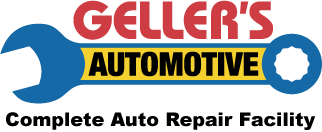
If you have ever been in a situation where you had to “slam the brakes” in order to avoid an object on the road, a darting animal, or even a vehicle in front – then you know the importance of having reliable and functioning brakes. Your vehicle’s brakes endure a significant amount of constant motion, heat, and use and those elements can cause your brakes to wear down over time.
In this blog, we examine essential information about your vehicle’s braking system and review the more common issues with your braking system. Additionally, we cover a few ways to keep your brakes performing effectively.
Brake Basics
There are several key components of your braking system that work together to slow or stop your vehicle when you depress the brake pedal, including:
- Rotors: Your vehicle’s rotors are the metallic discs that rotate with the motion of your wheel. When the brake pedal is depressed by the driver, the rotors are impacted with clamps on either side, called the calipers.
- Calipers: Your vehicle’s calipers are the clamps on either side of the rotor that engage the brake pads to slow or stop the vehicle.
- Brake Pads: Your vehicle’s brake pads are the components that make contact with the rotor when the brake pedal is depressed, causing the motion of the tire to slow down and stop.
- Brake Fluid: Brake fluid is an important aspect of your braking system. When the pedal is depressed, the pressure forces brake fluid through the brake lines and assists the brake components with doing their job of stopping the vehicle.
- Brake Drums: Some vehicles have braking components in the rear wheels that use springs to engage the brake pads. This type of brake requires less hydraulic force to stop the vehicle.
Braking System Issues
Your vehicle’s braking system is constantly in use when driving a vehicle and will be subject to breakdown if not properly maintained. Excessive braking, overuse, or negligence may lead to a variety of issues with your braking system.
| Component | Issue | Signs |
|---|---|---|
| Rotor | Rotors will wear down over time from constant friction and can develop grooves in the metal. | - Vibration when braking - Noisy brakes |
| Caliper | Calipers can develop wear from being in contact with worn rotors. | - Uneven brake pad wear - Leaking brake fluid - Pulling to one side while braking |
| Brake Pad | Brake pads wear down over time from friction and overuse and will also accumulate dirt and dust | - Squealing or screeching noise during braking - Grinding sounds - Brake warning light illuminates |
| Brake Fluid | Brake fluid may leak from brake lines, causing other braking system issues. | - Brake fluid leaks - Spongy feeling when pressing the brake pedal - Brake warning light illuminates |
| Drum Brake | Brake drums may warp over time or accumulate dirt and dust. | - Vibrations or shuddering when braking |
Maintenance
Keeping your brakes functioning requires a greater awareness of driving habits, along with some ongoing maintenance tasks.
Adjust your driving habits:
- Avoid “riding the brake”
- Take your foot off the pedal to slow down vs. braking hard
- Avoid carrying heavy loads too often
- Stay within the speed limit, especially in city or town driving
Maintenance tasks:
- Get rotors and pads inspected periodically; replace when worn or damaged
- Perform a brake fluid flush
- Bleed the brake lines of air pockets
If you are experiencing issues with your brakes, or just want to have some regular maintenance performed on them, contact us at Geller’s Automotive to schedule an appointment. Our service professionals will inspect your brakes and make any recommended repairs or replacements.



